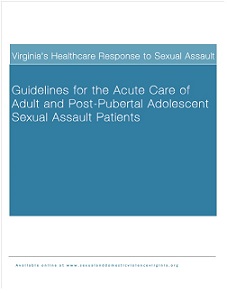Resources Library: Tools
Start a Search:
Technology Safety Planning with Survivors
Technology has a major impact on survivors of abuse. It can be used by a survivor to access help, to strategically maintain safety and privacy, and to remain connected to family and friends. It is often used to prove guilt and hold offenders accountable. Yet, technology, in its various forms, is also misused by abusers and perpetrators in crimes of domestic violence, sexual assault, stalking, and trafficking. The National Network to End Domestic Violence has developed Technology Safety Planning with Survivors to address how technology impacts the safety, privacy, accessibility, and civil rights of victims.
Toolkit for Law Enforcement & Legal Professionals on Understanding & Investigating Technology Misuse
NNEDV (National Network to End Domestic Violence) is pleased to announce the launch of their new Toolkit for Law Enforcement & Legal Professionals on Understanding & Investigating Technology Misuse. This toolkit was developed to meet the needs of law enforcement, attorneys, court personnel, community corrections officers, and other professionals to better serve survivors of technology-facilitated abuse. It provides thorough guides and resources on evidence collection for some of the most common technologies misused by abusers and perpetrators.
Click here to view these resources.
Virginia’s Healthcare Response to Sexual Assault:

Guidelines for the Acute Care of Adult and Post-Pubertal Adolescent Sexual Assault Patients
The document incorporates recommendations from professionals across Virginia, as well as information from current guidelines from relevant state and national resources on the management of sexual assault patients and the collection of forensic evidence. The guidelines provide a framework for the critical role of the healthcare sector in meeting the needs of sexual assault patients and the criminal justice system. They are organized around four fundamental criteria and were developed to address the healthcare response at the community, facility, and individual levels.
While these guidelines were developed specifically for healthcare professionals and facilities, the healthcare sector is just one component of a comprehensive response to sexual violence. These guidelines will also be a valuable component of statewide efforts to establish coordinated, collaborative, and compassionate responses to sexual violence in every community in Virginia. Published by Virginia Sexual and Domestic Violence Action Alliance and Virginia Chapter of the International Association of Forensic Nurses December 2009. 127 pages.
On July 1, 2013, Virginia enacted legislation that provides a procedure health care providers may use to evaluate incapacitated patients who may have been sexually assaulted (see § 54.1-2970.1 below). The legislation is intended to be used when a sexual assault examination and physical evidence recovery is prudent, but the adult patient is unable to consent and timeliness of evidence collection is crucial prior to destruction by medical interventions or bodily functions. The law outlines specific procedures and criteria that must be met in order to allow the examination and evidence recovery without the patient’s consent. In November, an addendum to the Healthcare Guidelines was released to provide guidance to healthcare professionals on the use of this new process. It is expected that the new consent process will be infrequently used, as consent for the sexual assault examination and physical evidence recovery may be obtained from next of kin, guardians, or from the patient after the patient regains the capacity to consent following temporary incapacity.
Volunteer Training Curriculum

The Volunteer Training Curriculum for Virginia’sSexual and Domestic Violence Agenciess provides 32 hours of activities designed to meet training standards for volunteers. The curriculum includes everything needed to conduct the trainings – a timed outline with learning objectives, handouts, and materials for activities.
Some of the topics addressed in the training include:
• Intimate Partner and Sexual Violence 101
• Prevention 101
• Histories of the Domestic and Sexual Violence Movements
• Crisis Intervention and Communication Basics
• Risk Assessment and Safety Planning
• Working with Children
• The Intersections of Violence and Oppression
• Trauma Stewardship
• And much, much more!
The link below provides access to the full curriculum. Look for the Session 1-8 files for all of the handouts and materials
Volunteer Training Curriculum: Session 1 Handouts and Materials

The Volunteer Training Curriculum for Virginia’sSexual and Domestic Violence Agenciess provides 32 hours of activities designed to meet training standards for volunteers. The curriculum includes everything needed to conduct the trainings – a timed outline with learning objectives, handouts, and materials for activities.
Session 1 is 3 hours and includes activities designed to inform participants about the basics of intimate partner and sexual violence.

